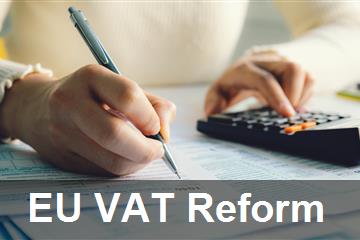
06 nov 2024
The EU has reached a political agreement on the VAT in the Digital Age (VIDA) package, which mandates online platforms like Airbnb to collect VAT on short-term accommodation and passenger transport services provided by non-VAT registered individuals or small businesses.
This reform aims to address competition distortions and VAT revenue losses.
The package also introduces cross-border e-invoicing and digital reporting requirements, with a phased implementation starting in 2025.
The directive outlines specific timelines for national law adjustments, with full compliance expected by 2030.

The European Union has taken a significant step towards modernizing its VAT system with the VAT in the Digital Age (VIDA) package.
This reform, agreed upon during the Ecofin Council meeting, targets online platforms such as Airbnb, requiring them to collect VAT on short-term accommodation and passenger transport services.
These services, often provided by non-VAT registered individuals or small businesses, have led to unfair competition and significant VAT revenue losses.
The reform aims to level the playing field by making platform operators responsible for VAT collection when the actual service provider does not declare their VAT identification number.
Starting July 1, 2028, EU member states can opt into this regime, with mandatory compliance by July 1, 2030.
Additionally, the directive facilitates the use of e-invoicing for national transactions without prior EU Commission approval and mandates structured electronic formats for intra-EU transactions by 2030.
This includes digital reporting requirements for B2B transactions, ensuring timely communication of invoice data.
The reform's phased implementation allows for gradual adaptation, with full effect expected by 2030.

